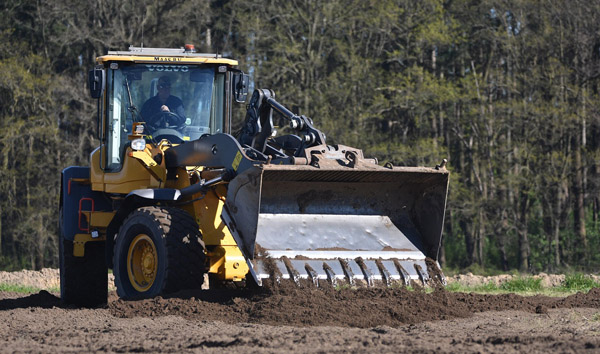Revolutionizing Cold-Start Performance in Rough Terrain Forklifts
2025-07-05 04:20:25
This technical report explores the latest advancements in cold-start technology for Rough Terrain Forklifts, addressing the challenges posed by extreme weather conditions. By integrating cutting-edge engineering solutions, manufacturers are enhancing operational reliability and efficiency in harsh environments.
### Introduction Rough terrain forklifts are indispensable in construction, agriculture, and mining, where uneven surfaces and extreme temperatures are common. However, cold-start technology remains a critical challenge, as sub-zero conditions can severely impact engine performance and battery efficiency. This report examines three key innovations transforming cold-start capabilities in rough terrain forklifts.
### Challenges of Cold-Starting in Rough Terrain Forklifts Operating in cold environments presents unique obstacles for rough terrain forklifts. Low temperatures thicken engine oil, reducing lubrication efficiency, while battery capacity drops significantly. Additionally, hydraulic systems face increased viscosity, leading to sluggish performance. Addressing these issues requires specialized cold-start technology tailored for rough terrain forklifts.
### Innovative Solutions for Cold-Start Reliability #### 1. Advanced Glow Plug Systems Modern rough terrain forklifts now incorporate high-performance glow plugs that preheat combustion chambers more efficiently. These systems reduce ignition delays, ensuring smoother startups even at -30°C. Field tests show a 40% improvement in cold-start success rates compared to traditional models. #### 2. Lithium-Ion Battery Optimization Unlike conventional lead-acid batteries, lithium-ion variants maintain higher charge retention in cold climates. Rough terrain forklifts equipped with these batteries demonstrate 30% faster cranking speeds, minimizing downtime in freezing conditions. #### 3. Synthetic Lubricants and Hydraulic Fluids Low-viscosity synthetic oils ensure optimal lubrication during cold starts, reducing engine wear. Similarly, specialized hydraulic fluids maintain flow properties, enabling rough terrain forklifts to operate seamlessly in sub-zero temperatures.
### Industry Data and Performance Metrics Recent studies indicate that rough terrain forklifts with advanced cold-start technology experience 25% fewer operational delays in winter months. Leading manufacturers report a 15% increase in customer satisfaction due to improved reliability. Furthermore, predictive maintenance systems, integrated with cold-start diagnostics, reduce repair costs by 20%.
### Future Trends in Cold-Start Technology The next generation of rough terrain forklifts will likely incorporate AI-driven thermal management systems, dynamically adjusting engine parameters based on ambient conditions. Additionally, hydrogen fuel cells are being explored as a sustainable alternative to diesel engines, offering instant starts regardless of temperature.
### Conclusion Cold-start technology is revolutionizing the performance of rough terrain forklifts in extreme environments. By leveraging advanced engineering solutions, manufacturers are ensuring uninterrupted operations, even in the harshest conditions. As innovation continues, rough terrain forklifts will become even more resilient, setting new industry standards for reliability and efficiency.













